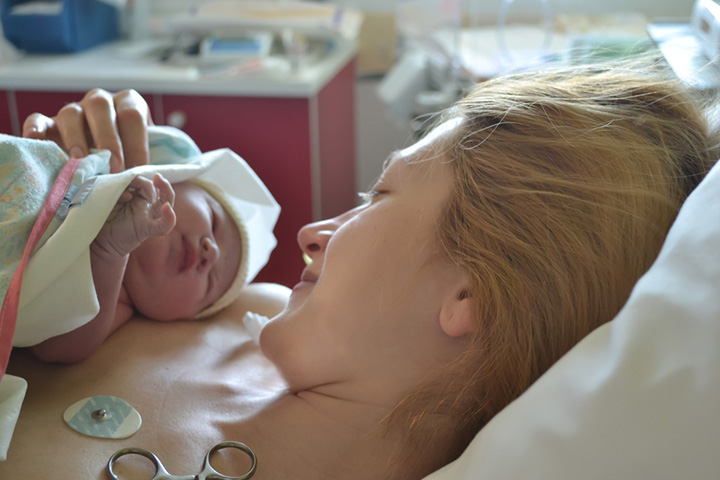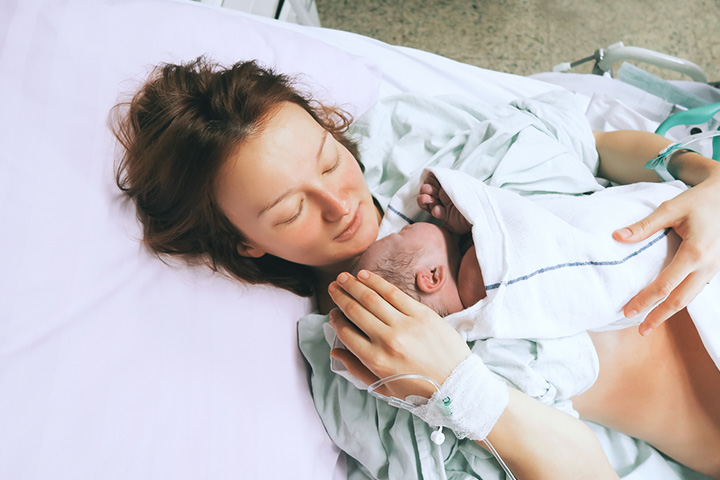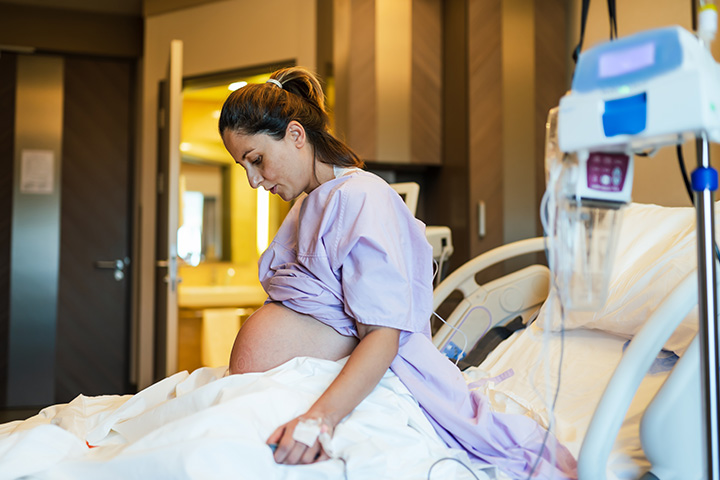
Image: Shutterstock
There’s a lot that’s been said about childbirth. Sure, it’s a magical process, and there’s nothing like it. But there’s also a lot of trauma, pain, and discomfort involved, and it’s important to speak about that too. When you hear about the news of your pregnancy, you’ll be filled with excitement and joy, no doubt. But you’ll also be bombarded with lots of unsolicited advice from everyone — be it your neighbors, relatives, grandparents, or even parents. There’s also a lot of false information and myths about childbirth that constantly make the rounds, and we are here to bust them! Let’s uncover the truth together and debunk myths around childbirth, so you’re well-informed about what’s going to happen during the process:
Myth 1: Babies Stop Moving Before You Go Into Labor
A common myth that you should discount is that your baby will stop moving before you go into labor. There is no truth to this claim. Your baby’s movements do not decrease or increase when you go into labor. In fact, you should feel your baby moving right until you give birth. If you notice that your baby is not moving, contact your doctor or midwife immediately.
Myth 2: Once You Give Birth Via Cesarean, You Cannot Have A Normal Delivery
Image: Shutterstock
If your health condition allows it and your doctor approves it, there is no reason why you cannot have a normal delivery after you’ve had a cesarean. You can opt against it, which is entirely your choice, but most of the time, you will have the option of choosing between the two.
Myth 3: Epidurals Increase Your Chances Of Having A Cesarean
Image: Shutterstock
Who comes up with these myths? We have no clue, but we are here to tell you that they are not true! Epidurals are administered during labor to reduce the pain you experience and make labor less painful. They are injections given in your spine near the nerves that carry pain messages to your brain (1). While many mothers opt for epidurals, some don’t. However, whatever the case may be, there is no proof that it increases your chances of a cesarean.
Myth 4: Mothers Bond With Their Babies Instantly
Image: Shutterstock
One of the most common myths about pregnancy and motherhood is that mothers bond with their babies immediately. But that’s far from the truth. Some mothers may bond with their babies easily, soon after birth. But if you don’t feel that gush of emotions when you see your little one for the first time, don’t worry! You are not alone! Some mothers take time to bond, and that doesn’t make you a bad mother in any way. Besides, it’s normal to take time to recover from the trauma of childbirth, where everything seems distorted to you. When you’re in such a state, it’s only natural for you to struggle to find the strength (both emotionally and physically) to bond with your baby.
Myth 5: You Will Know When Your Water Breaks
Image: IStock
Childbirth is not like what is shown in the media, and it’s essential to understand that. Unlike what is portrayed on television, no water comes gushing out of you when your water breaks. There’s a lot of pain, trauma, nervousness, and anxiety involved with childbirth. So, don’t go by what you see on television — you will be disappointed and in for one hell of a ride.
Myth 6: Drinking Hot/Cold Beverages Affects Your Baby’s Movements
Image: IStock
There is no scientific evidence that says that hot or cold food and beverages affect your baby’s movements. Your baby is usually active when awake and not as active when they are asleep (2). If your baby’s activity becomes lesser than usual, consult your doctor or midwife immediately.
Myth 7: You Must Give Birth On Your Back
Image: IStock
No rule says that you must give birth flat on your back. You can switch positions and move around to find the most comfortable position for you while you’re in labor (3). It is entirely your prerogative. Different birthing positions can help you feel in control, reduce pain and push the baby out — pick what works best for you! Unless there is a medical reason to refrain from a particular position, you are free to do what you feel most comfortable with, as long as your doctor has given you the green light.
Several old wives’ tales around pregnancy give you many ideas, information (albeit false), and myths about childbirth. But it’s important not to get carried away and believe every tale that is spun. Speak to your doctor if you have doubts, concerns, or questions regarding your baby, pregnancy, childbirth, labor, and even your postpartum care. Gathering information from reliable sources will give you the accurate information you need to get through the process of childbirth. How many of these myths have you heard before? Let us know in the comments if you’ve heard any other myths about childbirth!


















